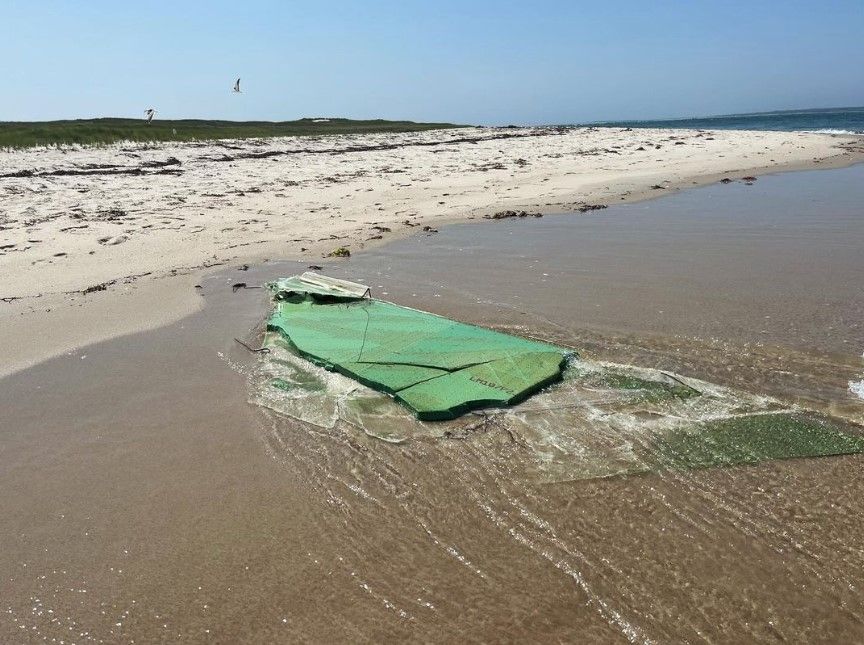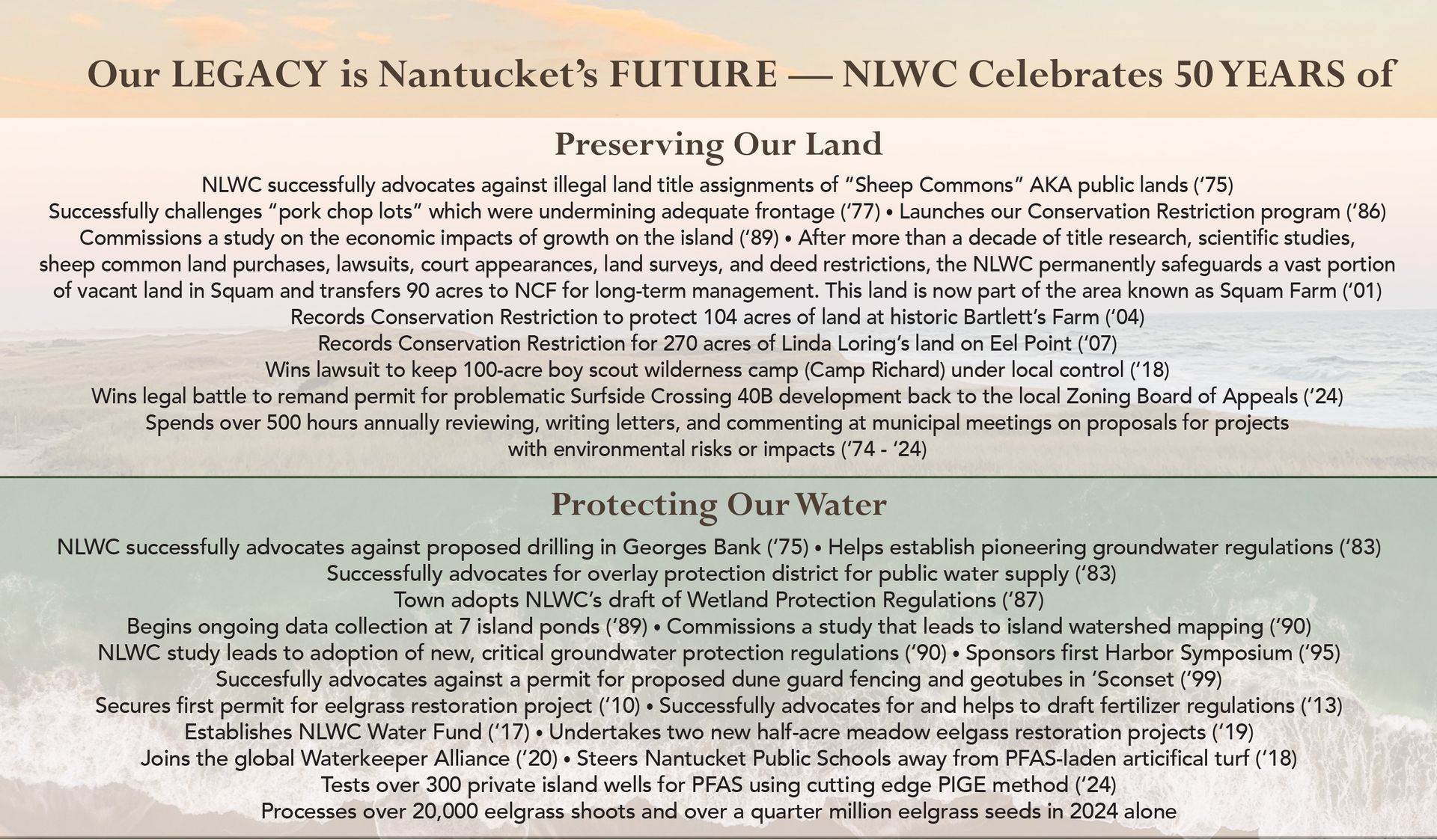Advocacy
We Pay Attention. We Take Action.
5 Decades of Advocacy
As
the island’s only environmental advocate, the Nantucket Land & Water Council has been protecting the health of our environment and community by safeguarding our land and water resources for over fifty years. NLWC staff members
spend well over 500 hours each year
Paying Attention
- Attending all Nantucket regulatory meetings and voicing concerns where:
- Changes in regulatory policy, procedures and practices could set a dangerous precedent
- Projects that could adversely impact our environment are under discussion
- Advocating for best practices in environmental protection in updates to resource plans and regulations (such as our Harbor Plan and Wetland Regulations)
- Making recommendations on proposed zoning and bylaw changes
- Speaking out on behalf of the environment at Annual Town Meeting
AND
Taking Action
- Hiring and working with expert consultants to assist us with in-depth research, policy and project review
- Initiating or influencing by-law and policy changes and additions to proactively protect our land and water resources (i.e., fertilizer regulations), and to close loopholes in zoning by-laws that have unintended adverse effects on the environment
- Opposing regulatory decisions and the permitting of projects that negatively impact our environment through litigation when necessary
Current Advocacy Initiatives
Protecting Our Waters
Surfside Crossing
NLWC Position
The proposed 156-unit development on 13.6 acres known as Surfside Crossing (SSX) is of inappropriate density (13 x the local zoning) and would compromise our drinking water supply. The project site lies within the Zone II Wellhead Protection Zone of Nantucket’s public water supply. Stormwater runoff can carry pollutants such as oil, heavy metals, chemicals, pesticides, and nutrients (e.g., nitrogen and phosphorus). The aggregate amount of impervious surfaces proposed is three-and-a-half times (3.5x) the limit imposed by the Drinking Water regulations and the Nantucket bylaw. This project will negatively impact drinking water quality and must not be allowed to go forward.
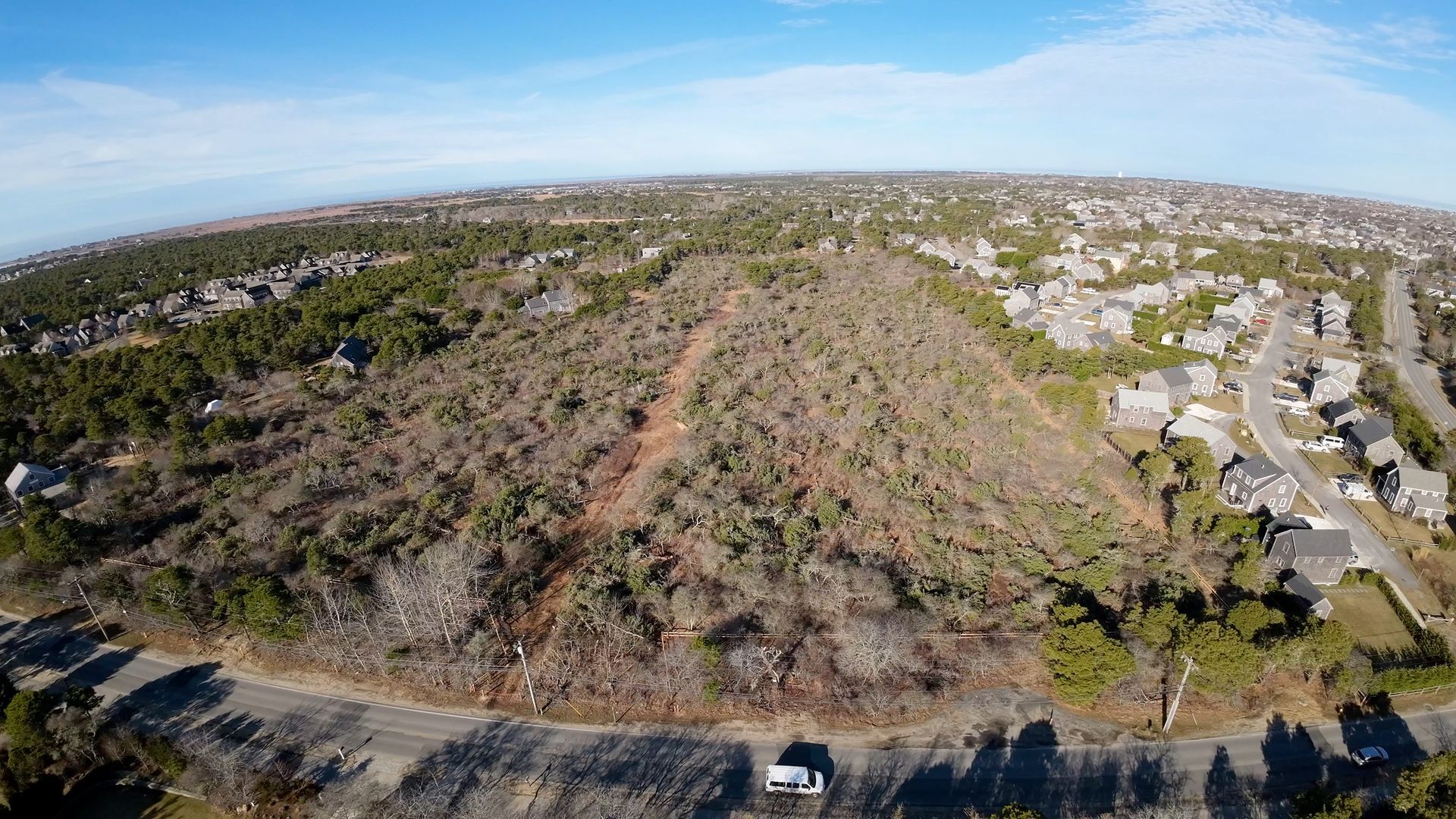
NLWC Action
The SSX developers redesigned their project during the appeals process using entirely different plans than those they initially submitted to the Nantucket ZBA. The NLWC successfully joined with Nantucket Tipping Point (NTP) to appeal the state permitting agency’s decision in Superior Court. In early 2024, Nantucket Superior Court judge Mark Gildea decided in favor of the NLWC and NTP, and the Surfside Crossing permit was remanded back to the local ZBA for further review. Subsequently, the NLWC has engaged expert engineering and water quality consultants and our attorney to review the new plans and present reports to the ZBA, highlighting the intense environmental risk they represent.
Desired Outcome
The NLWC would support a locally permitted project of suitable density that would preserve our water quality and the integrity of our infrastructure, reduce the impact on rare and endangered species, and mitigate any habitat loss.
Protecting Our Waters
Offshore Wind
NLWC Position
The Nantucket Land & Water Council supports alternative energy and recognizes the potential benefits of offshore wind projects to mitigate our carbon footprint and the effects of climate change. However, as an environmental advocate and member of the Waterkeeper Alliance, we must ensure that this industry is held accountable for its impact on the health of our environment. The initial Vineyard Wind 1 blade failure on July 13, 2024, accompanied by the accidental release of debris into our waters and the subsequent lack of efficiency, transparency, and appropriate communication by project developer Vineyard Wind and blade manufacturer GE Vernova, has demonstrated the urgent need for regulatory reform.
NLWC Action
The NLWC has hired an attorney to advocate on our behalf for improvements to existing permits and to the requirements for all future permits. The NLWC will also advocate for local regulatory oversight of future projects to ensure that incidents are minimized to the greatest degree possible and that if/when they occur, they are handled with efficiency, transparency, and as little damage to environmental resources as possible.
Desired Outcome
The NLWC is working with fellow Waterkeeper Alliance member organizations to advocate for changes to regional and national policy that will ensure a greater degree of quality control and oversight, transparency, and accountability in the industry, and to avoid a repeat of the response we witnessed after the July 2024 blade failure.
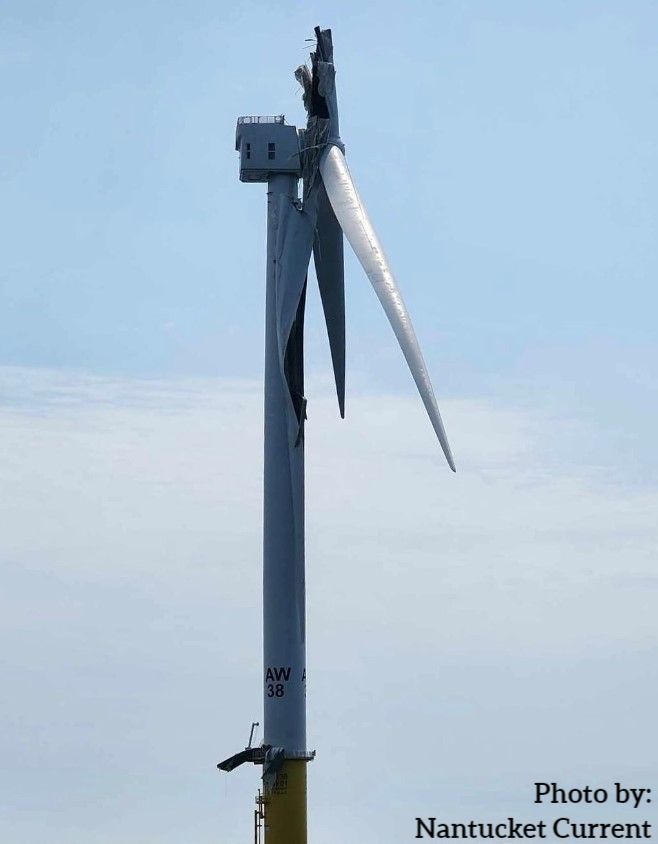
Protecting Our Waters
Stormwater Management
NLWC Position
Stormwater management is essential to protecting water quality. Stormwater runoff can carry pollutants such as oil, heavy metals, chemicals, pesticides, and nutrients (e.g., nitrogen and phosphorus) into our aquifer (drinking water), ponds and marine water bodies. These pollutants can degrade water quality, compromise public health and harm marine ecosystems - including plant life, fish, and shellfish. Nantucket was ahead of its time by installing a stormwater system before many other towns, however, this was done at a time when we were unaware of the pollutant loads stormwater can carry. The Town needs to move forward with infrastructure upgrades, improved maintenance, and the development of stormwater regulations to help protect the health of our waters.
NLWC Action
In 2024, the NLWC applied for and received a grant from Great Harbor Yacht Club Foundation to work collaboratively with the Town of Nantucket’s Stormwater Department and other island partners monitoring stormwater runoff at several harbor locations. This will help us to identify where the harbor is being most adversely impacted and by which pollutants. It will also give us the data we need to ensure that changes proposed to improve infrastructure, policies or practices are relevant to today’s needs. We will also hire expert consultants as needed to assist us with research and advocacy for improved stormwater management policies to protect water quality around Nantucket Harbor.
Desired Outcome
The NLWC supports the development of Stormwater Regulations for Nantucket, and will advocate for continued planning and improvement of stormwater infrastructure, maintenance, and upgrades. We look forward to contributing to this process with the stormwater data we collaboratively collect in the coming years.
Coastal Resilience
’Sconset Bluff Geotubes
NLWC Position
The current installation of geotubes has been out of compliance with its permit’s mitigation requirements since 2015. Data collected by project consultants indicates the geotubes are detrimental to the environment, increasing the erosion on surrounding beaches. As a result of the permit violations, a removal order was upheld by Superior Court in 2022. The sand deficit must be provided, and no permit for any extension of the geotubes should be issued. NLWC believes there are less environmentally damaging options to hold the line along ’Sconset bluff while alternative access to Baxter Road is built. This is especially true as the Town’s engineers have determined the alternative access can be completed within 2-3 years. The town should proceed with relocating Baxter Rd.
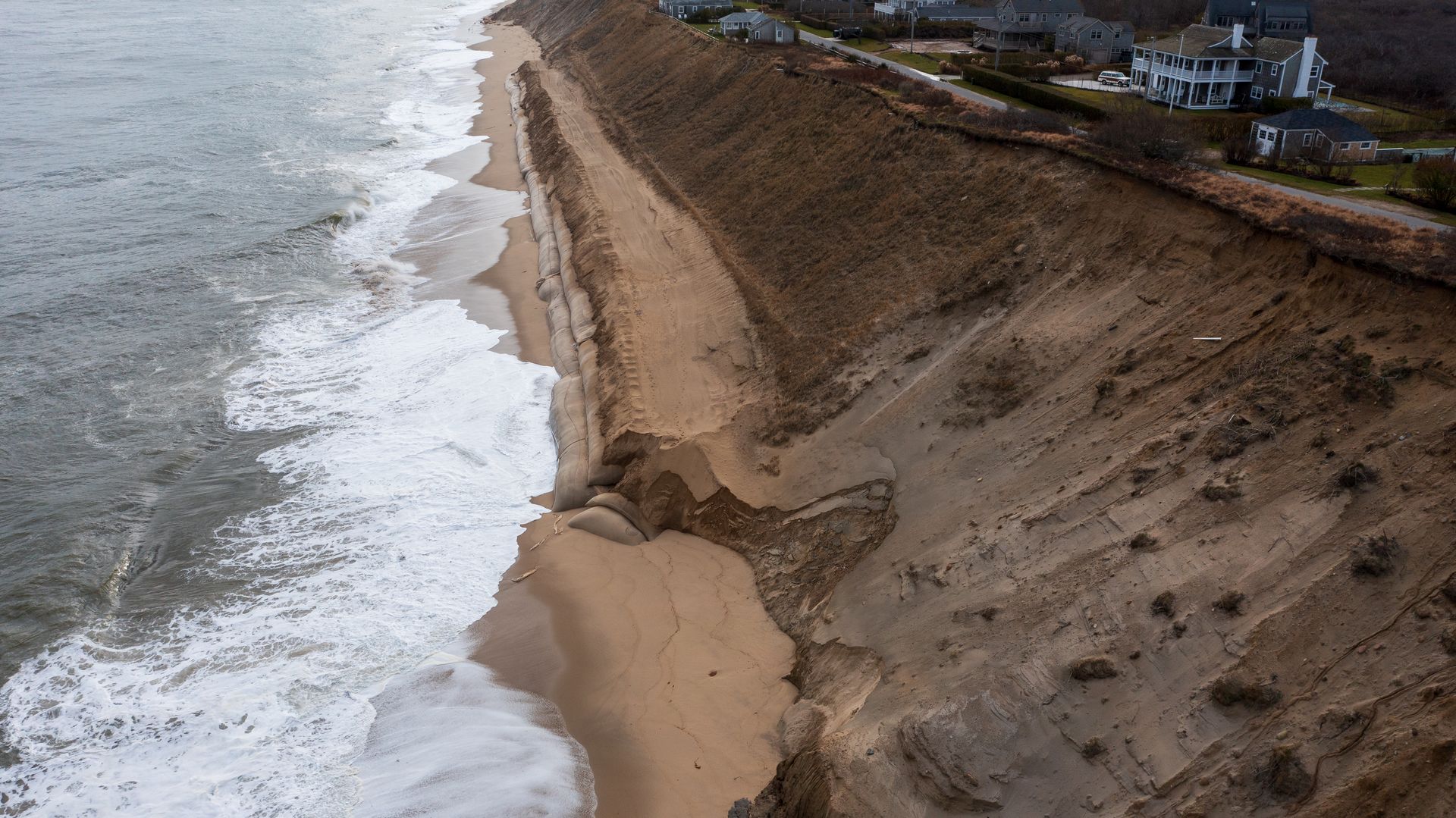
NLWC Action
We are staunchly supportive of the Nantucket Conservation Commission’s previous demand that the geotubes be removed and vocally opposed to any expansion of the geotubes. In late 2022, we petitioned the County Commissioners to privatize the current Baxter Rd. By doing so, the Town would remove its obligation to maintain the road in its current position. The road would be private, but public access to their homes and the lighthouse would be maintained. Since then, the Town has been working on alternative access plans for Baxter Road, which are now 90% complete. The NLWC attends every meeting and will continue to advocate for addressing the sand deficit and against installing additional geotubes.
Desired Outcome
The NLWC advocates completing alternative access for Baxter Rd and ultimately removing the geotubes. The NLWC will work with the Town to establish best policies for other parts of the island in the face of sea level rise.
Open Space & Resource Protection
Short-Term Rentals (STRs)
NLWC Position
The accelerating development, repurposing of properties, and intensity of use associated with short-term rentals (STRs) as a business puts increasing pressure on the island’s natural resources and infrastructure, from the health of our drinking water, ponds, and harbors to solid waste management, water, and sewer, and threatens irreparable harm to our Island’s environment. This intense (re)development also negatively impacts Nantucket's historic, rural character and quality of life.
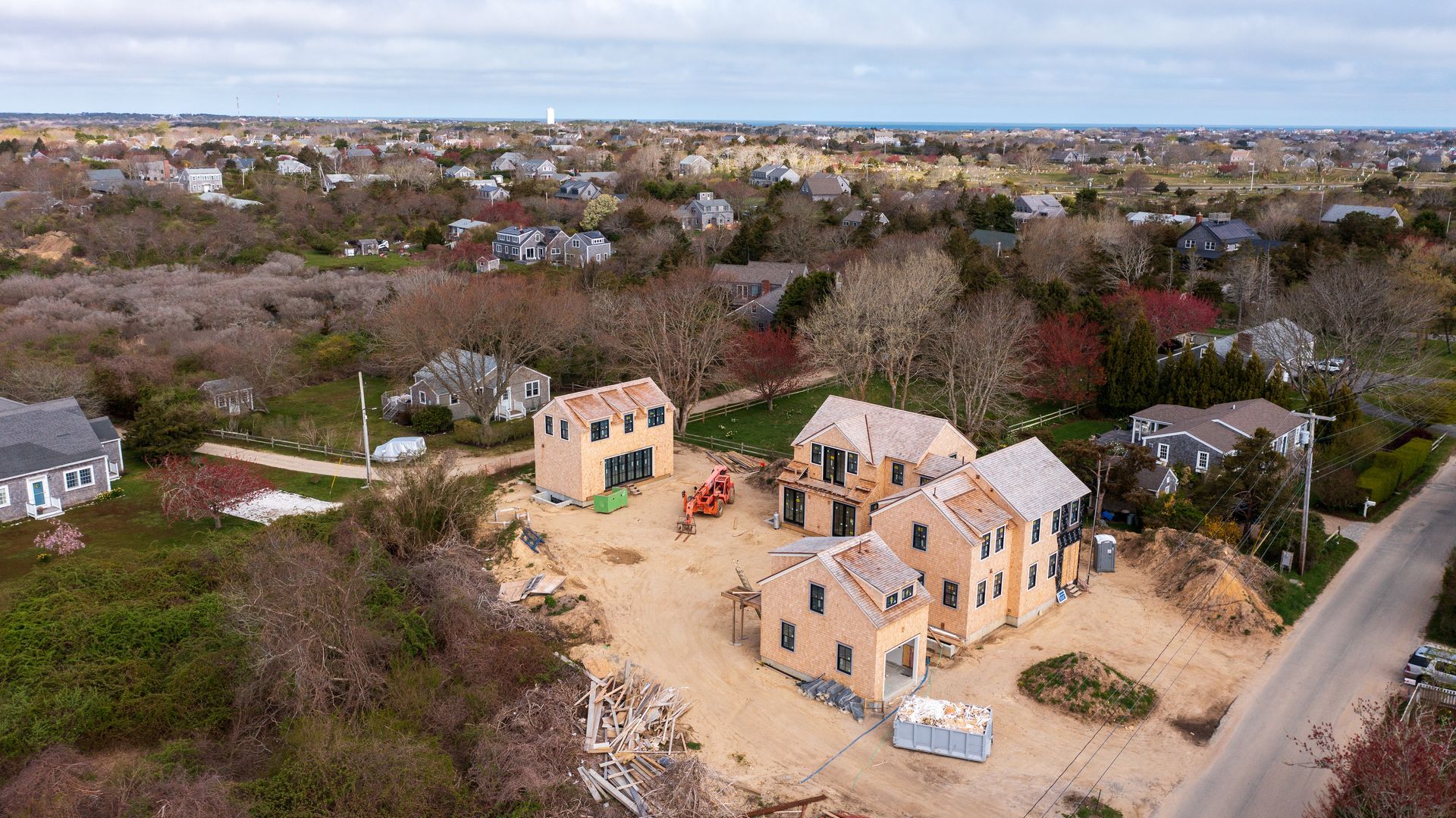
NLWC Action
There is ongoing pressure to allow commercial STRs in residential districts through proposed by-law changes by those in our community who profit from STRs. The NLWC has been and continues to work with our attorney and land-use specialists to provide an extensive review of these proposed changes with legal input and recommendations to municipal committees, elected decision-makers, and voters in our community regarding all proposals for zoning and regular by-law changes around STRs.
Desired Outcome
The NLWC supports balanced by-law proposals that reasonably limit STRs to Nantucket residents, ensure effective regulation by our Town government, and are consistent with our local traditions. NLWC opposes STRs for commercial or investment purposes or STRs that our Town government cannot practically regulate.
Open Space & Resource Protection
Preventing the Increase of Infill Development through Zoning Amendments
(41-81L Subdivisions)
NLWC Position
There is a loophole in Nantucket’s zoning by-law ((Section 139 33-(A)(3)) that has been exploited – often for spec development – resulting in the development of dozens of new lots creating many problems for Nantucket’s environment - including stormwater management issues affecting our drinking water, ponds and harbor water quality, elimination of open space and habitat, and increasing pressure on our Town infrastructure.
NLWC Action
NLWC supported an article for a zoning bylaw amendment submitted by Emily Molden and voted on at the Annual Town Meeting in 2023. This article sought to strike the language in our zoning bylaw which automatically grants buildability to the newly created non-conforming lots created under the state’s preexisting structures provision in the MA Subdivision Control Law (Chapter 41 Section 81L). If the amendment passed, new lots could still be created using the preexisting structures provision, but any redevelopment of those lots made nonconforming by the division would require the oversight and a variance from the Zoning Board of Appeals. The NLWC supported this article with outreach to our members, and in our recommendations and other materials presented at Annual Town Meeting. The bylaw amendment required a ⅔ majority to pass and failed to reach that mark by only six votes.
Desired Outcome
This article will be resubmitted and the NLWC will continue to advocate that this loophole be closed through a successful ⅔ majority vote at a future Town Meeting.
Recent Initiatives
Open Space & Resource Protection
Increasing Housing Stock Without Expanding Potential Development
In order to mitigate the impact on our environment of ongoing, critical affordable housing development on the island, the NLWC has been exploring ways to augment our affordable housing stock without increasing development potential. In 2024, we hired a renowned land use, planning, and environmental policy expert to perform legal and land use research and help define regulatory mechanisms that could achieve this end. The NLWC supported local partners in putting forth the resulting zoning policy changes, which are being incorporated in part by the local Planning Board in a proposed zoning by-law amendment at the 2025 Annual Town Meeting.
Open Space & Resource Protection
Camp Richard
In 2018, The Nantucket Land & Water Council won a protracted and difficult legal battle with the Cape Cod & Islands Council (CCIC) of the Boy Scouts of America, Inc., successfully defending 100 acres of open space located in mid-island from the CCIC’s attempt to seize the property and sell a portion of it to a developer. Thanks to the NLWC, the property remains in the hands of our local Camp Richard Campers’ Association, which has utilized the property as a low-impact wilderness camp ever since it was granted to them by the Civic Association in 1955.
Protecting Our Waters
Synthetic Turf Fields at Nantucket Public Schools
In 2022, the NLWC hired consultants and extensively reviewed the Nantucket Public School’s proposal to install synthetic athletic turf fields as part of its campus-wide master plan. This analysis determined that the proposal presented a risk to Nantucket’s water resources. In addition to the presence of regulated and unregulated PFAS compounds, their stormwater management plan did not adequately address flooding concerns and lacked a well-designed, long-term monitoring program. School Committee members’ declared their decision to remove the turf fields from the plan was directly influenced by NLWC commentary.
Protecting Our Waters
Establishing the Clean Water Coalition
In 2022, the NLWC – in partnership with the Nantucket Shellfish Association (NSA) and Maria Mitchell Association (MMA)– led the effort to establish a Clean Water Coalition for the island resulting in a group of 14 organizations and entities working to advance Town initiatives to reduce nutrient pollution, and to elevate overall community education around clean water.

